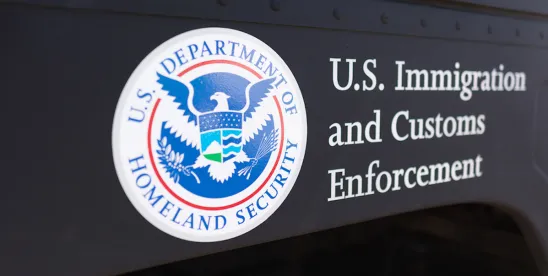As employers plan for next year, the results of the November 2024 general election could provide a glimpse into potential changes to federal policies, including employment-based immigration.
The federal government has exclusive responsibility over immigration into the United States and can implement and alter regulations and policies. As such, Employers can predict potential impact to employment-based immigration policy based on the new composition of Congress, policies and priorities of the president-elect, and interpretations and rulings issued by the U.S. Supreme Court.
Congressional Influence
A key example in the employment-based arena is the annual cap of new H-1B visas each fiscal year. Every year, an important topic of discussion is whether there will be an increase on the annual allotment of new H-1B visas, in part because demand for skilled worked exceeds the annual cap of 65,000 visas (and an additional 20,000 slots for beneficiaries with U.S. master’s degrees). Only Congress has authority to raise the H-1B cap lottery quota.
Executive Influence
The president and executive agencies can influence employment-based immigration through agency priorities, new regulations, and executive orders, and attempt to persuade Congress to take the necessary legislative action for its priorities. Although subject to court oversight, the president can set priorities for executive agencies influencing resource allocation and enforcement of immigration laws.
Agencies such as the Department of Homeland Security (DHS), United States Immigration and Citizenship Services (USCIS), and Customs and Border Protection (CBP), among others, are responsible for enforcing immigration policies and laws. These executive agencies can propose regulations providing guidelines and rules for immigration laws passed by Congress. The Code of Federal Regulations (CFR) provides the principal set of rules and regulations issued by federal agencies pertaining to immigration and naturalization to the United States.
Additionally, the president can influence employment-based immigration through executive orders, which direct executive agencies to modify enforcement practice or create temporary progress to address immigration issues. As noted, the president cannot raise the H-1B cap from 65,000 because such annual allotment is governed by federal statute. However, the president can issue policies influencing the USCIS’ H-1B cap process, such as how the lottery is conducted and by publishing new forms, changing definition interpretations, and modifying filing fees.
Judicial Influence
The U.S. Supreme Court has the power to interpret the law, determine the constitutionality of the law, and apply it to individual cases. With this judicial power, the U.S. Supreme Court has the ability to uphold or strike down laws and presidential directives based on their alignment with the Constitution and existing statutes. Additionally, the U.S. Supreme Court may hear cases challenging specific immigration decisions or policies brought by individuals or businesses. These case rulings and interpretations can lead to significant changes in immigration policy.
Recently, in Loper Bright Enterprises v. Raimondo, the U.S. Supreme Court held certain agency decisions regarding the interpretation of laws are no longer entitled to deference and a court has authority to overrule the agency, reversing a 40-year-old precedent affording federal agencies a degree of discretion in interpreting ambiguous laws in their areas of expertise. This affects immigration agencies in their implementation and enforcement of U.S. immigration policy.
As the election approaches, employers should consider working with immigration counsel to analyze how changes to employment-based immigration and other federal policies may influence business and business-related decisions.





 />i
/>i

